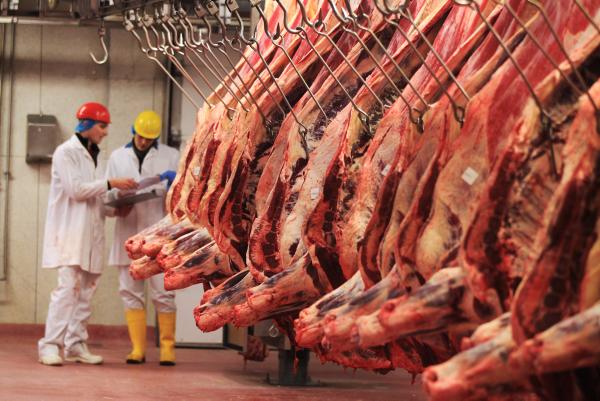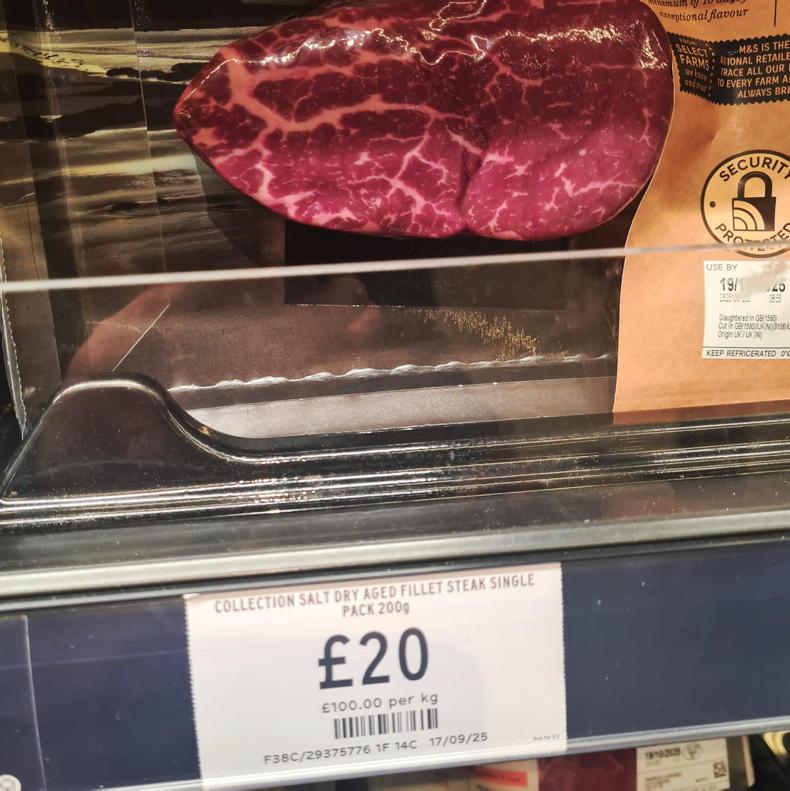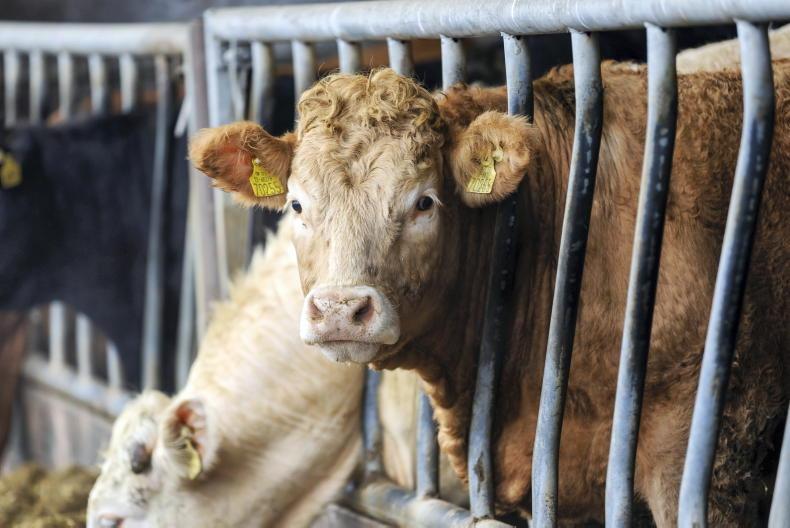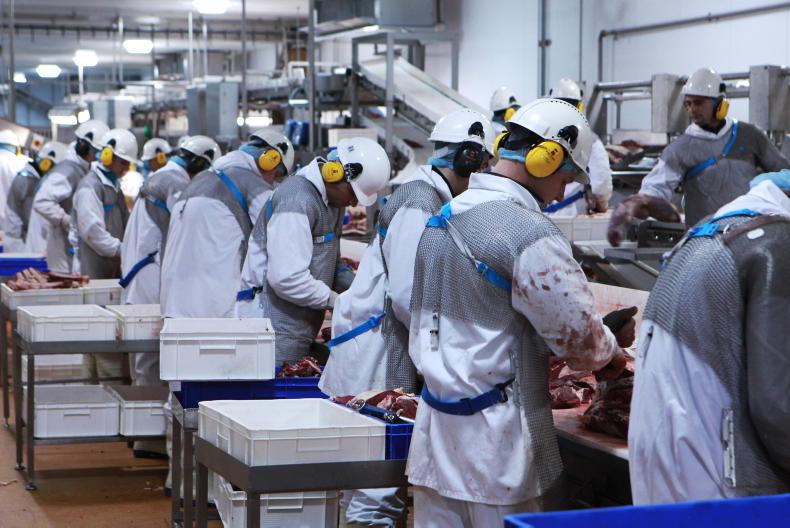Once the proposed ABP deal to take over the Allen family shares in Slaney went to the EU competition authority, clearance to go ahead was always the likely outcome. The Irish Competition and Consumer Protection Commission (CCPC), so quick off the mark to warn the beef forum on price fixing at a time when beef farmers were on their knees two years ago, didn’t take it on despite a further appeal by the IFA to do so recently. Once formally notified to Brussels, as was the case at the start of last month, it was always likely that it would be part of the 90% that get approval first time around.
Farmer concerns
Farmer opposition to the Slaney deal crossed all farm organisations and was presented professionally by the IFA in a specially commissioned report that shone the spotlight on the impact on competition in the south Leinster region in particular for prime cattle. Yet competition commissions in general tend to give greater emphasis to potential consequences of a merger on consumers than suppliers further down the supply chain. Against these criteria, with Ireland being predominantly a beef exporting nation, the reasons for rejecting the deal stood little chance of carrying the day.
Farmers will see this decision, alongside the warning to the beef forum two years ago, as being evidence of big business interests trumping farmer interests. Protecting consumers against the risk of the supply chain ripping them off through price fixing is a worthy function. However, the nuances of the market for Irish beef cattle are less appreciated outside Ireland, where tens of thousands of farmers have essentially a handful of potential customers for their cattle. A piece of EU legislation, country of origin labelling, has closed a traditional live export market to Britain. ABP’s UK operation is one of the major companies that puts a heavy penalty on non-UK origin cattle. There are other factories that simply won’t pay for non-UK origin cattle at all, returning any that do turn up to the supplier with a huge slaughter and handling charge.
Making the best of it
Even though farmers will feel aggrieved, this decision need not be a bad thing for the Irish beef industry in the long term. In fact, if it had happened in the dairy sector, it would have been applauded and more of the same encouraged. This reflects the confidence of farmers in that sector for treating them fairly with the openness and transparency of the co-op system showing exact profit margins. And while there are gripes about chief executive salaries, it is seen as a system that works well.
Ironically, margins in beef processing aren’t particularly high, as demonstrated by companies that do publish accounts, including ABP’s partner in the Slaney venture, Fane Valley co-op’s beef operation in Northern Ireland Linden Foods. Ireland’s beef industry is dominated by large private companies with little or nothing known about their financial performance. In this vacuum, farmers are suspicious that years of aggressive acquisitions are funded by getting cattle from farmers at less than their real worth.
Global reach
Now that the deal is approved to go ahead, there is no doubt that Slaney will benefit from the global reach of ABP into international beef markets where its portfolio of customers is one of the best in the industry. This servicing of the top-end retail customers in the UK and Europe does demand larger, more integrated businesses, and this is where independent single-location factories struggle against the larger groups. While highlighting in their submission to the EU Competition Commission the benefits to the Slaney business of this venture, ABP’s UK lamb business is likely to benefit from Irish Country Meats’ expertise in lamb markets across Europe for added-value lamb products.
Absence of competition from separate factories for cattle is a concern for farmers, but there is also an upside in that one less competitor works at the other end of the chain as well. It means there is one less Irish company chasing the same customers across Europe to sell beef.
It has been one of the great weaknesses of the privately owned Irish beef industry that companies are inclined to undercut and undermine each other in the market selling beef.
There isn’t the equivalent of Ornua, formerly the Irish dairy board, that collectively sells dairy products, the most famous of which is the Kerrygold butter brand.
Read more
What does the ABP-Slaney deal signal?
ABP-Slaney analysis: Tackling the opaqueness of the Irish beef industry
ABP-Slaney deal: Is it time to prepare for life without independent processors?
Full coverage: ABP-Slaney deal
Once the proposed ABP deal to take over the Allen family shares in Slaney went to the EU competition authority, clearance to go ahead was always the likely outcome. The Irish Competition and Consumer Protection Commission (CCPC), so quick off the mark to warn the beef forum on price fixing at a time when beef farmers were on their knees two years ago, didn’t take it on despite a further appeal by the IFA to do so recently. Once formally notified to Brussels, as was the case at the start of last month, it was always likely that it would be part of the 90% that get approval first time around.
Farmer concerns
Farmer opposition to the Slaney deal crossed all farm organisations and was presented professionally by the IFA in a specially commissioned report that shone the spotlight on the impact on competition in the south Leinster region in particular for prime cattle. Yet competition commissions in general tend to give greater emphasis to potential consequences of a merger on consumers than suppliers further down the supply chain. Against these criteria, with Ireland being predominantly a beef exporting nation, the reasons for rejecting the deal stood little chance of carrying the day.
Farmers will see this decision, alongside the warning to the beef forum two years ago, as being evidence of big business interests trumping farmer interests. Protecting consumers against the risk of the supply chain ripping them off through price fixing is a worthy function. However, the nuances of the market for Irish beef cattle are less appreciated outside Ireland, where tens of thousands of farmers have essentially a handful of potential customers for their cattle. A piece of EU legislation, country of origin labelling, has closed a traditional live export market to Britain. ABP’s UK operation is one of the major companies that puts a heavy penalty on non-UK origin cattle. There are other factories that simply won’t pay for non-UK origin cattle at all, returning any that do turn up to the supplier with a huge slaughter and handling charge.
Making the best of it
Even though farmers will feel aggrieved, this decision need not be a bad thing for the Irish beef industry in the long term. In fact, if it had happened in the dairy sector, it would have been applauded and more of the same encouraged. This reflects the confidence of farmers in that sector for treating them fairly with the openness and transparency of the co-op system showing exact profit margins. And while there are gripes about chief executive salaries, it is seen as a system that works well.
Ironically, margins in beef processing aren’t particularly high, as demonstrated by companies that do publish accounts, including ABP’s partner in the Slaney venture, Fane Valley co-op’s beef operation in Northern Ireland Linden Foods. Ireland’s beef industry is dominated by large private companies with little or nothing known about their financial performance. In this vacuum, farmers are suspicious that years of aggressive acquisitions are funded by getting cattle from farmers at less than their real worth.
Global reach
Now that the deal is approved to go ahead, there is no doubt that Slaney will benefit from the global reach of ABP into international beef markets where its portfolio of customers is one of the best in the industry. This servicing of the top-end retail customers in the UK and Europe does demand larger, more integrated businesses, and this is where independent single-location factories struggle against the larger groups. While highlighting in their submission to the EU Competition Commission the benefits to the Slaney business of this venture, ABP’s UK lamb business is likely to benefit from Irish Country Meats’ expertise in lamb markets across Europe for added-value lamb products.
Absence of competition from separate factories for cattle is a concern for farmers, but there is also an upside in that one less competitor works at the other end of the chain as well. It means there is one less Irish company chasing the same customers across Europe to sell beef.
It has been one of the great weaknesses of the privately owned Irish beef industry that companies are inclined to undercut and undermine each other in the market selling beef.
There isn’t the equivalent of Ornua, formerly the Irish dairy board, that collectively sells dairy products, the most famous of which is the Kerrygold butter brand.
Read more
What does the ABP-Slaney deal signal?
ABP-Slaney analysis: Tackling the opaqueness of the Irish beef industry
ABP-Slaney deal: Is it time to prepare for life without independent processors?
Full coverage: ABP-Slaney deal










SHARING OPTIONS